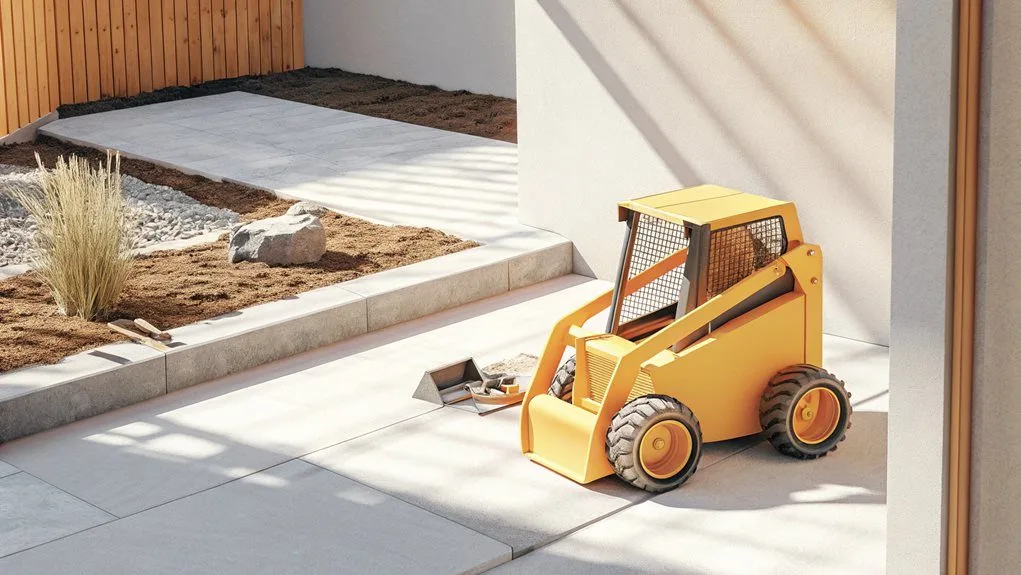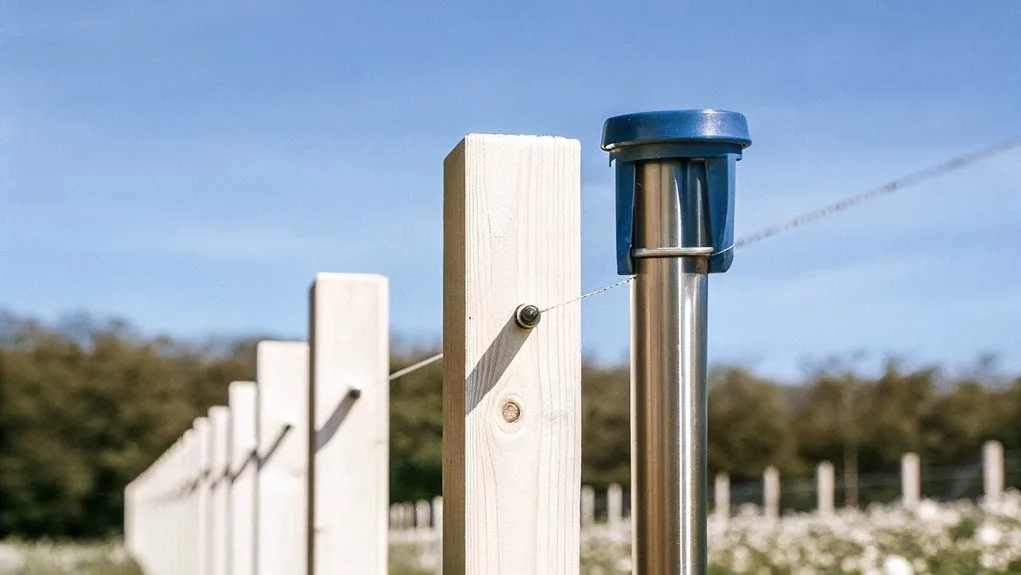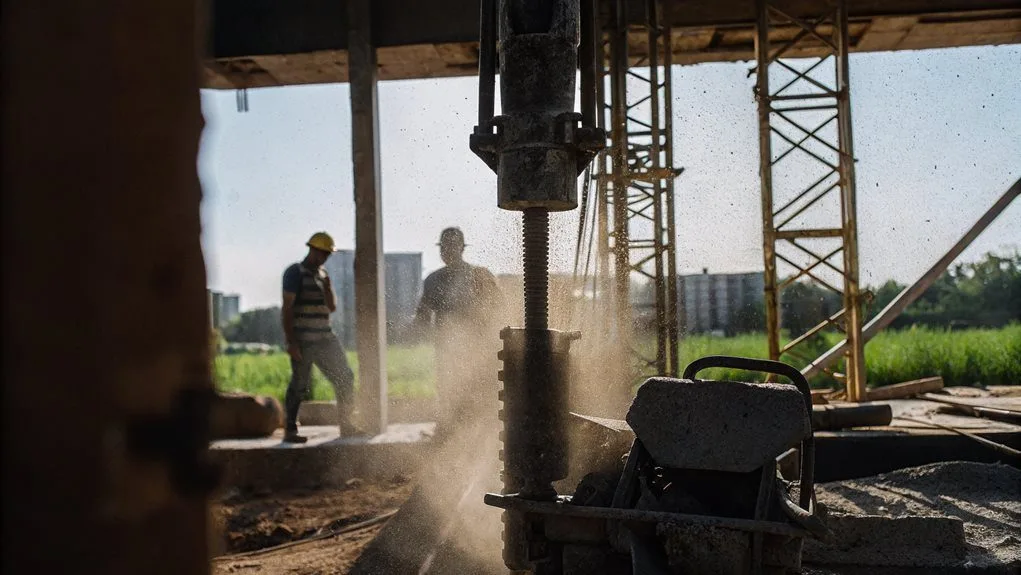Navigating the complexities of construction projects often leads professionals on a quest for cost-saving strategies, especially in the realm of plant hire. The balance between maintaining project efficiency and quality while trimming expenses is a delicate one. With the right insights, however, achieving this balance becomes not just possible, but straightforward. The challenge of managing costs without sacrificing the integrity of your construction work is one many face, and it’s here that targeted advice can make a real difference.
Drawing from a wealth of experience in the construction industry, this article is designed to equip you with the strategies needed to optimize your plant hire investments. By understanding the specific needs of construction professionals and addressing common hurdles with practical solutions, we aim to foster a sense of confidence in your ability to make informed decisions. As you continue reading, you’ll discover a range of effective tips and tactics that promise to guide you towards more economical project management, ensuring your questions are answered and your project goals are more attainable.
Key Takeaways
- Choose local suppliers and optimize their location and availability to save on delivery costs and increase efficiency.
- Utilize multiple depots of local suppliers for flexibility and quick response times.
- Implement proper care, maintenance, and cleaning of equipment to avoid additional fees.
- Renting equipment can save up to 70% compared to purchasing, and short-term hires can reduce costs for specific projects.
Location and Availability
Optimising location and availability of plant hire suppliers is crucial for reducing costs and ensuring efficient construction operations. When it comes to equipment for construction projects, choosing the right plant hire supplier can save both time and money. One important consideration is to opt for local suppliers. By choosing a supplier that is based nearby, delivery costs can be significantly reduced. This is especially important when it comes to bulky and heavy equipment.
In addition to cost savings, utilizing local suppliers also increases availability and reduces downtime. Having a supplier in close proximity means that equipment can be delivered quickly, minimizing any delays in the construction process. Furthermore, local suppliers often have multiple depots in strategic locations, which enhances flexibility and cost-effectiveness. This means that even if one depot is out of stock, another nearby location can fulfill the equipment requirements.
Another advantage of choosing local suppliers is the quicker response times and better on-site support they can offer. In case of any issues or breakdowns, local suppliers can provide immediate assistance, ensuring that the construction operation can continue smoothly. Moreover, being close to the project site means that equipment replacement can be done swiftly, minimizing any downtime.
Equipment Care and Maintenance
Proper care and maintenance of construction equipment is essential for minimizing costs and ensuring optimal performance throughout the project. Neglecting equipment care can lead to damages, repairs, and additional expenses that can quickly add up. By implementing a comprehensive maintenance plan, construction companies can save money and extend the lifespan of their equipment.
One key aspect of equipment care is immediate contact with the supplier in case of any damage. Reporting damages promptly allows for timely repairs, preventing further complications and costly fixes. Additionally, conducting thorough machinery checks before operation can help identify any potential issues and address them before they become major problems.
Regularly cleaning the equipment is another important aspect of maintenance. Keeping the machinery clean not only improves its performance but also helps avoid additional fees that may be charged for returning dirty equipment. It is also crucial to refill the machinery to the required levels to prevent any extra charges for refilling.
To summarize the importance of equipment care and maintenance, the following table provides a visual representation of the key points discussed:
| Key Point | Benefits |
|---|---|
| Immediate contact with supplier for damages | Prevents costly repairs |
| Thorough machinery checks before operation | Avoids unexpected issues |
| Regular cleaning of equipment | Helps avoid additional fees |
| Refilling machinery to required levels | Prevents extra charges |
| Prompt reporting of damages | Avoids financial penalties |
Cost-Effective Hiring Strategies
Implementing cost-effective hiring strategies is crucial for construction companies looking to save on plant hire expenses. Renting plant machinery can save up to 70% compared to purchasing, making it a cost-effective option for construction companies. Opting for short-term hires can be more cost-effective for specific projects, allowing companies to only pay for the equipment they need for the duration of the project. Utilizing local suppliers can also help reduce costs, as it eliminates or reduces delivery costs by up to 30%.
Monitoring equipment usage is another effective strategy to save money on plant hire. By keeping track of equipment usage, companies can prevent overdue fees and unnecessary expenses. This can be done through regular check-ins or using tracking systems to monitor the usage of rented machinery.
Negotiating flexible rental terms with the plant hire company is also a recommended strategy. By discussing and agreeing on flexible rental terms, companies can ensure that they only pay for the equipment when it is needed, avoiding any additional costs. This can include options for extending or reducing the rental period based on the project’s requirements.
Maximizing Equipment Usage
To achieve optimal cost savings and productivity, construction companies must focus on maximizing equipment usage. By implementing efficient scheduling and planning, monitoring equipment performance and maintenance, and providing proper training for operators, companies can save money and improve overall project efficiency in the construction industry.
Efficient scheduling:
Properly scheduling equipment usage allows for the effective allocation of resources, preventing unnecessary rental extensions and additional costs. By coordinating equipment needs with project timelines, construction companies can ensure that equipment is available when needed, reducing idle time and maximizing productivity.
Equipment performance monitoring:
Regularly monitoring equipment performance and maintenance can help identify any issues early on, preventing costly breakdowns and ensuring that machinery remains in optimal condition. This not only extends the lifespan of the equipment but also reduces overall rental expenses.
Operator training:
Investing in proper training for equipment operators is crucial for safe and effective equipment use. Well-trained operators not only minimize the risk of accidents and damage but also ensure that equipment is being used efficiently, preventing unnecessary wear and tear.
Choosing the Right Plant Hire Company
When choosing a plant hire company, it is important to consider factors such as proximity, competitive pricing, convenient services, and multiple depots for increased flexibility. The construction industry relies heavily on plant hire companies to meet their equipment needs. By selecting the right supplier, you can save time and money in the long term.
One of the best ways to manage your equipment needs is by hiring plant from companies that are located near your construction site. This reduces delivery costs and minimizes logistics expenses. Additionally, opting for a local supplier with competitive prices ensures that you get cost-effective options.
Convenience is another crucial factor to consider. Look for a plant hire company that offers convenient services such as online booking and easy equipment returns. Some companies even provide alerts when the equipment is due for return, helping you avoid overdue fees.
To further enhance flexibility, it is beneficial to choose a supplier with multiple depots. This allows you to easily access equipment from different locations, especially if you have multiple construction projects in different areas.
Ready to Tackle Your Next Project?
Looking to get started with a construction or maintenance project? Why not browse our Plant Hire, Tool Hire, Earthmoving Services, Forestry Services, or Breakdown & Towing Services? We’ve got everything you need to get the job done—on time, every time! And if you’re rolling through town, don’t miss the unbeatable amenities at Piet Retief Truck Stop. Let’s make your project a breeze!






